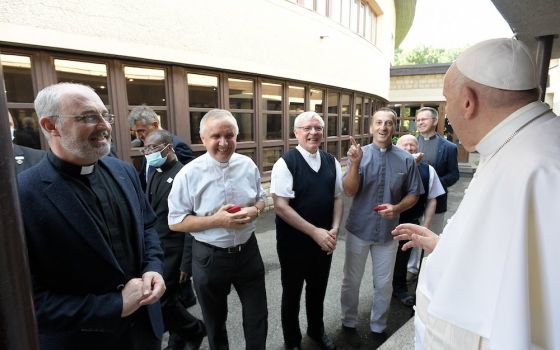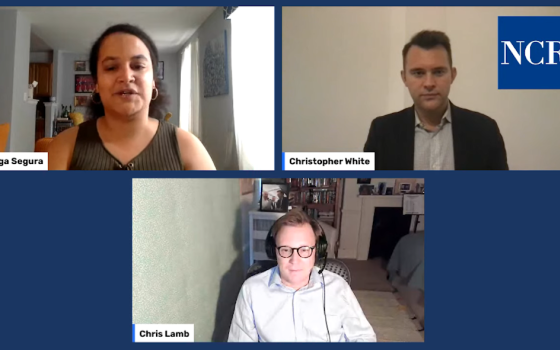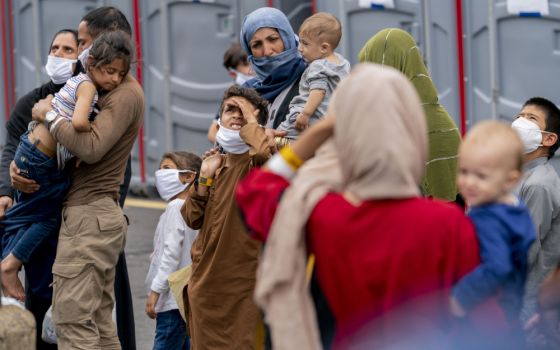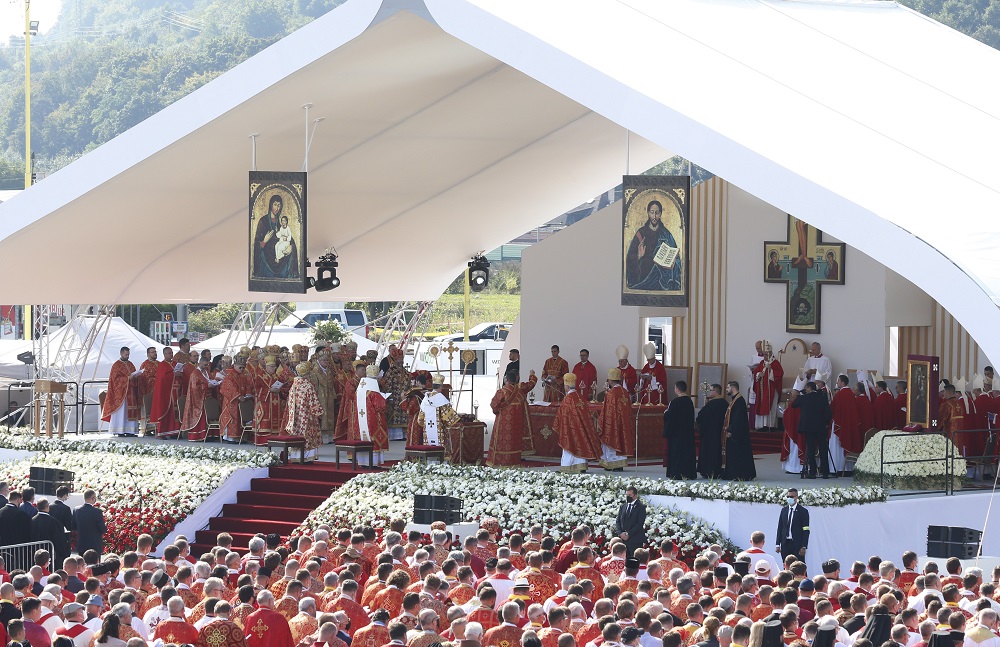
Pope Francis celebrates a Byzantine Divine Liturgy of St. John Chrysostom at Mestská športová hala Square in Prešov, Slovakia, Sept. 14, 2021. (Paul Haring/CNS)
PRESOV, SLOVAKIA — Christian faith is not demonstrated by worldly power but through lived witness, Pope Francis said on Sept. 14, warning that the cross should not be used as a political symbol or a sign of social or religious status.
"Witnesses generate other witnesses, because they are givers of life," he insisted. "That is how the faith is spread: not with worldly power but with the wisdom of the cross; not with structures but with witness."
The pope's words came during his first public Mass since arriving in Slovakia on Sept. 12, which he celebrated in the Byzantine liturgy of St. John Chrysostom on the feast day of the Exaltation of the Holy Cross.
"How often do we long for a Christianity of winners, a triumphalist Christianity that is important and influential, that receives glory and honor?," the pope asked in his homily. "Yet a Christianity without a cross is a worldly Christianity, and shows itself to be sterile."
Advertisement
A Christian humility detached from the "temptation" of power has been a constant theme of the pope's trip to Hungary and Slovakia.
At the beginning of his trip in the Hungarian capital of Budapest — in the presence of the country's controversial Prime Minister Viktor Orban, who has amassed tremendous political power over the last decade by presenting himself as a defender of Christian Europe — Francis warned against those who would "would prefer a powerful Messiah rather than a crucified servant."
The pope returned to that message in the bucolic eastern Slovakian city of Prešov, telling the crowd of nearly 40,000 that "in the eyes of the world, the cross represents failure."
"We can fail to accept, except perhaps in words, a weak and crucified God, and prefer instead to dream of a God who is powerful and triumphant," he said. "This is a great temptation."
"Jesus is not a loser, but God, who willingly offers himself for every man and woman," he added.
The pope's words were punctuated by the selection of Prešov as the site for his first Mass in the country. Here, in 1950, Eastern-rite [Greek Catholic] Church leaders were arrested by communist authorities and forced to convert Orthodoxy.
Prešov, where Pope John Paul II also met with Eastern-rite Catholics in 1995, is a "message city," Ines Murzaku, professor of religion at Seton Hall University, told NCR.
As he awaited the pope's arrival, Fr. Eduard Roman, an Eastern-rite Catholic priest, said that the message was understood and well-received. Francis' recognition of the area's difficult history provides hope for its future.
"He is being a father to us all," he told NCR. "My heart is very, very full."
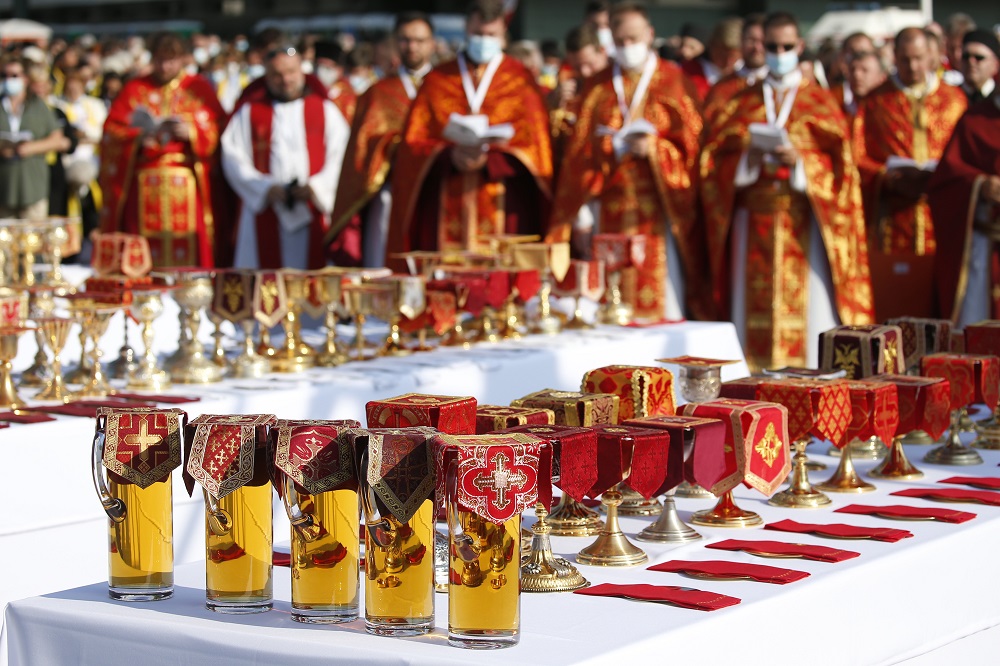
Chalices are pictured before Pope Francis' celebration of a Byzantine Divine Liturgy of St. John Chrysostom at Mestská športová hala Square in Prešov, Slovakia, Sept. 14, 2021. (Paul Haring/CNS)
As Francis celebrated the Mass using the fourth-century liturgy, against a backdrop of a Greek Catholic crucifix, in a nod to the region's troubled past, the pope made clear that the cross should not be used for political gain, but instead demands sacrifice.
"Witnesses of the cross do not employ the ways of deception and worldly pretension: they do not want to impose themselves and their own, but to give their lives for others," the pope said, paying tribute to persecuted believers and martyrs who had given their life for faith.
Lauding them as "heroes of everyday existence" whose "lives changed history," the pope said it was incumbent upon those in attendance to honor their memory with their own lives.
"Crucifixes are found all around us: on necks, in homes, in cars, in pockets," said Francis. "What good is this, unless we stop to look at the crucified Jesus and open our hearts to him."
"Let us not reduce the cross to an object of devotion, much less to a political symbol, to a sign of religious and social status," he added. "For the cross is not a flag to wave, but the pure source of a new way of living."





